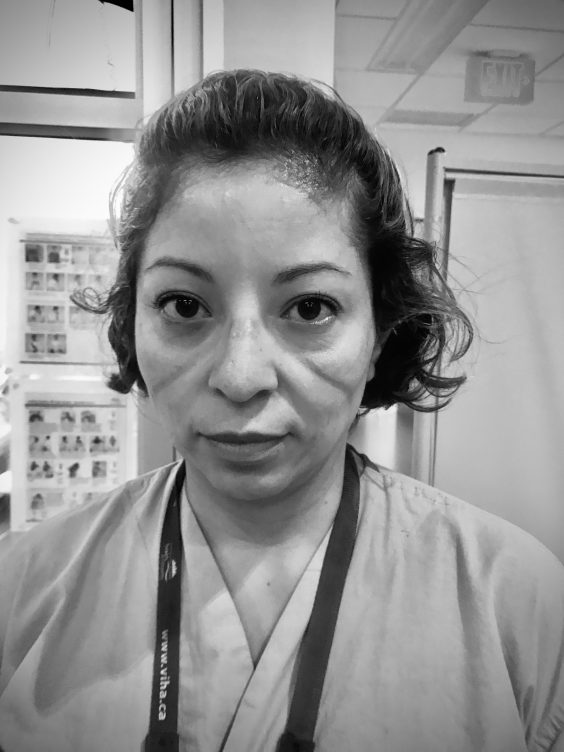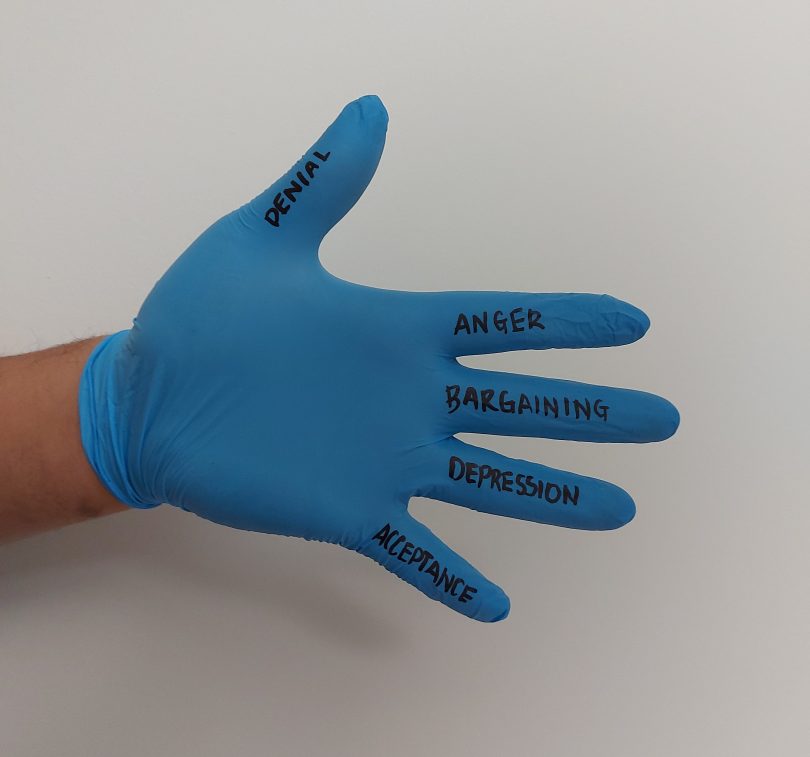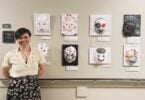With National Nursing Week here, Agnes Black has one request: let’s scale back the ‘nurses are heroes’ talk.
“When we make them heroes we don’t think of them as people with real needs,” says Black, Providence Health Care’s Director of Research and Knowledge Translation and a co-investigator in new research on nurses’ experiences during the pandemic.
“Some of their actions are heroic, definitely. But often they’ll say ‘I love nursing and this is what I want to do, but I’m exhausted.’ If we treat them like heroes we’re acting like they shouldn’t need to sleep or that safe staffing levels aren’t vitally important.”
Her insights echo early findings in a Photovoice Study, a collaboration between Providence Health Care and Ruhina Rana and Nicole Kozak at the Douglas College Nursing Program.
Contributions show compassion, capacity to lead

The unique research project engaged 12 nurses, including some from Providence. Each submitted photographs, writing and artwork that portrayed their pandemic nursing experiences. Black says the hundreds of pages of material from these submissions and five focus groups showed nurses’ compassion and capacity for leadership in the health care system.
Photovoice studies, often used in community-based participatory research, compile fresh perspectives and shine light on overlooked social issues through artistic expression. In effect, the participants become the experts in this type of qualitative study.
“To me the greatest tragedy of this pandemic would be if we got through this horrible time and didn’t learn anything, and use that learning to strengthen the health care system,” says Black, who also works as a research associate at the Centre for Health Evaluation and Outcome Sciences (CHEOS) at UBC, and Adjunct Professor at the UBC School of Nursing.

“My anxiety spiraled down to depression”
The researchers found that nurses juggled complex, mixed emotions, and all of them looked for ways to take care of themselves.
“My anxiety spiraled down to depression,” wrote one participant. “It was so exhausting. It is only now that I’ve started to learn how to accept things. It’s the new normal for most of us.”
Leaving 12-hour shifts to see anti-mask protesters
More than one person said how frustrating it was to risk their lives and their health working 12-hour shifts during the pandemic, only to then leave the hospital and see anti-mask protesters, or confront neighbours and friends who downplay the dangers of the pandemic, she adds.
She says nurses spoke about their loneliness and not being able to see family [in the first weeks of the pandemic]. “They didn’t want to put senior family members at risk. They were trying to take care of themselves and they were trying to stay hopeful.”
Reports to be released this summer
Now that they’ve collected their data, the research team will organize the hundreds of pages of material and write two reports this summer. One will be designed to illuminate the findings to study participants and other health care workers. She anticipates a more formal report will appeal to decision makers in health care policy, including the Ministry of Health and delegates at the International Council of Nursing conference August 29 to September 1, where the team will present its findings.
Black says the nurses’ focus group discussion, writing and photography reaffirmed her admiration for their work ethic in strenuous times.
All participants said they love nursing
“None of them said, ‘I’m done, this is awful.’ They all said, ‘I love nursing, I got into it knowing it was going to be hard,’ so my appreciation for them has risen even higher. But I also feel their frustration in a more visceral way.”
Black and the research team aim to use the study results to appeal to policy decision-makers.
“I’m hoping that people are going to say ‘Wow, these are important voices,’ and when we are rewriting health care policy and strengthening the health care system, we’re going to make sure that these nurses’ voices are included in those discussions.”
Nurses as leaders who are finding their voices
Black says she’s optimistic that nurses may one day have a larger role in influencing health care policy.
Black has served on admissions committees for local nursing programs, and she found many applicants approached the program armed with degrees and significant life experiences in community health or social impact work. They shared their dreams of a career in health leadership such as leading programs or health care organizations.
“I think nurses are finding their voices. In school they’re being taught not only to speak up day to day for patient safety, but to speak up to help strengthen the health care system. Their ideas matter.”






